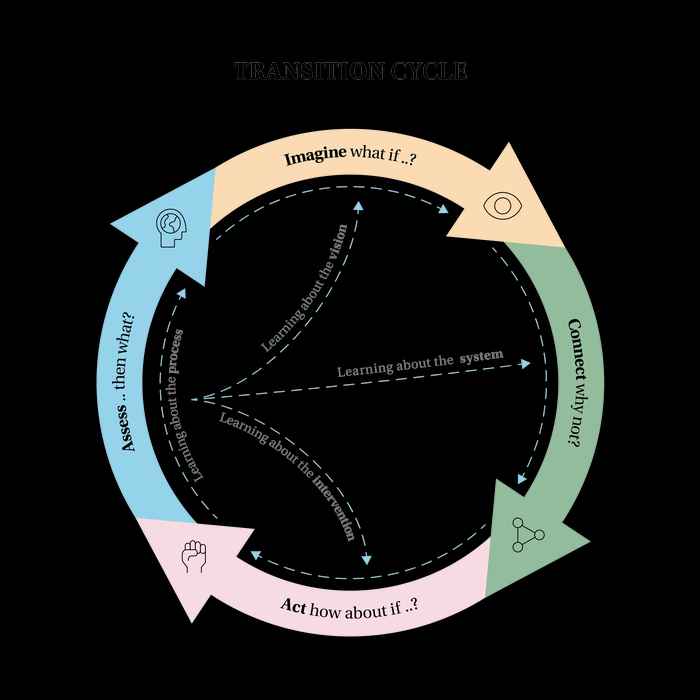Teachers and Change Making
Methods & Materials
What makes Change Making education valuable?
This generation of students is concerned about the bigger issues in today’s society. Not surprising, as they have to deal with them now and in the future. Collectively, we must take collaborative action to disrupt established patterns and power structures to move towards a liveable future.
Change Making enables students from various disciplines to develop the knowledge, skills and attitudes necessary to be meaningful change-makers and initiate, create and evaluate responsible, relevant and innovative societal transitions.
Using the Transition Cycle, students and societal partners collaborate intensively as co-learners on societal issues. At the end of this programme, change-makers will have carried out an intervention outside the classroom with a positive impact on personal growth and societal transitions.

“Being able to transform the world is about being able to imagine a different future, trying to make change happen, and continue to learn along the way. The core aim of the Transition Cycle is to connect these skills meaningfully and help students embark on this transformational process.”Luca Bertolini
Learning outcomes
- The student is able to reflect on their motivations and capabilities in shaping societal transitions
- The student is able to appreciate and (critically) evaluate the complexity of transition issues by integrating different perspectives and areas of expertise into the various phases of the transition cycle
- The student is able to empathise with the knowledge and opinions of others so that diverse stakeholders and their needs are considered in shaping societal transitions
- The student is able to engage in sincere dialogue, convey perspectives orally and in writing, and adapt communication to diverse stakeholders
- The student is able to engage in co-creative collaborative relationships, develop and facilitate them in inter- and transdisciplinary teams
- The student is able to initiate change by utilising imagination, creativity and innovative thinking to break prevailing systems
- The student is able to shape change and critically evaluate the realisation process
- The student is able to demonstrate courage, determination and compassion in shaping transitions
